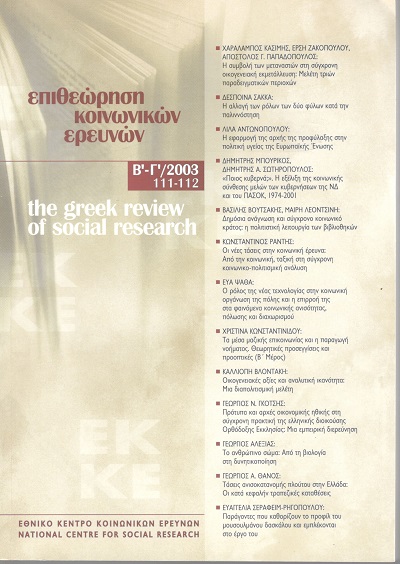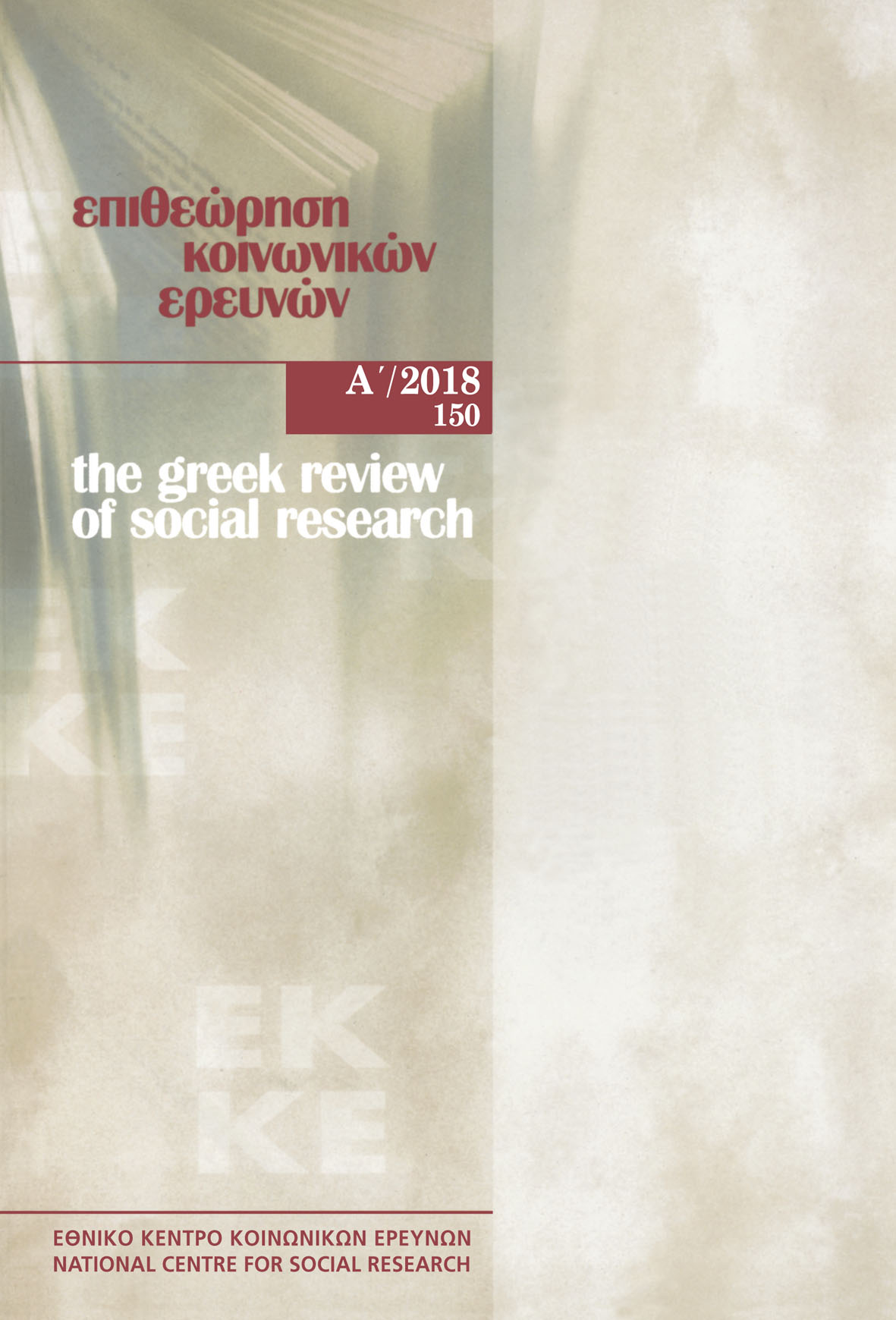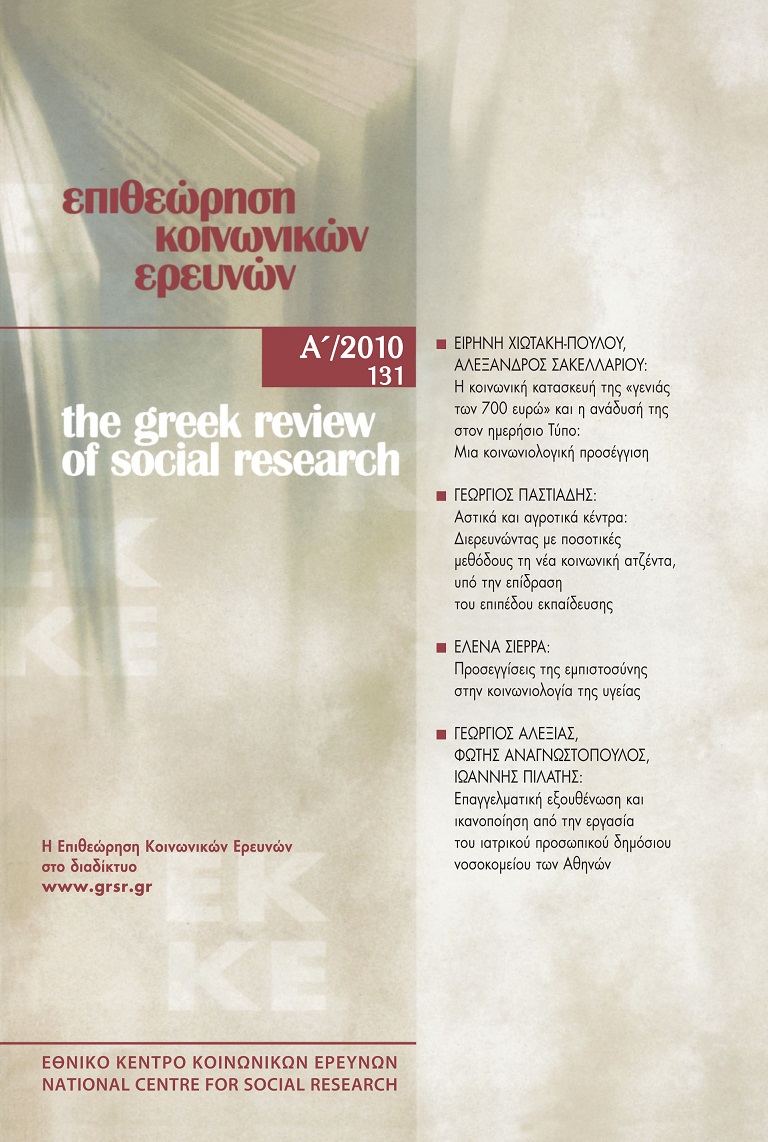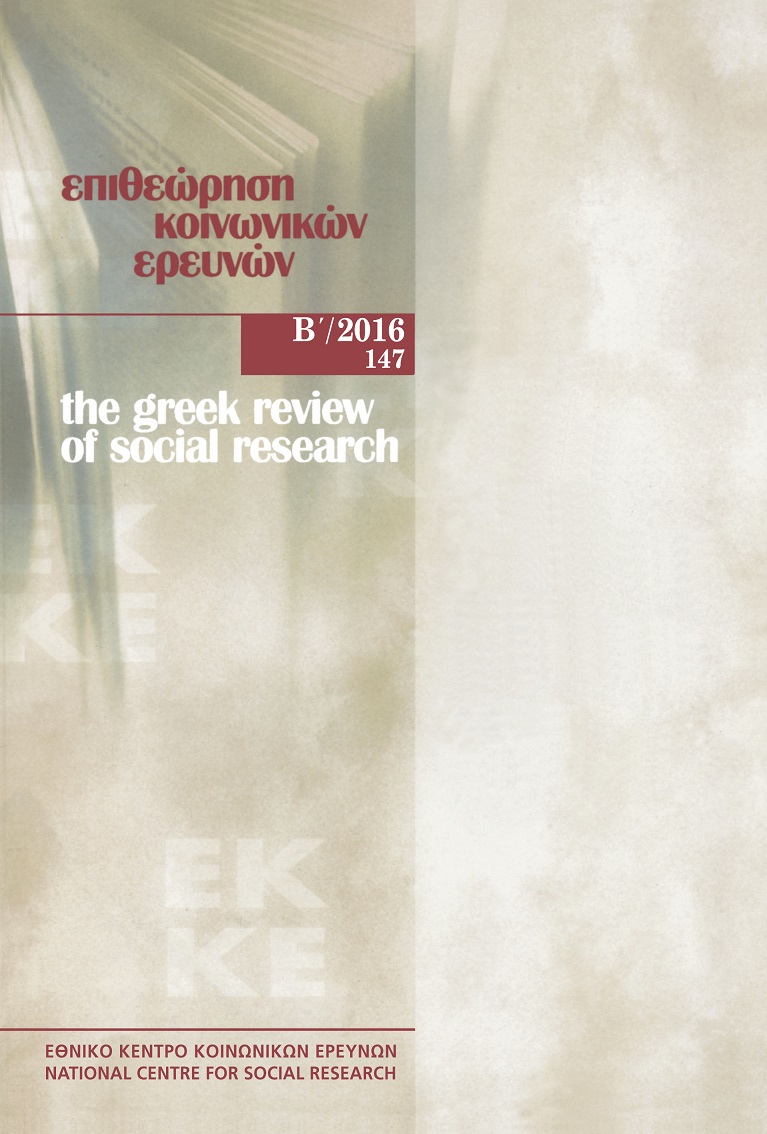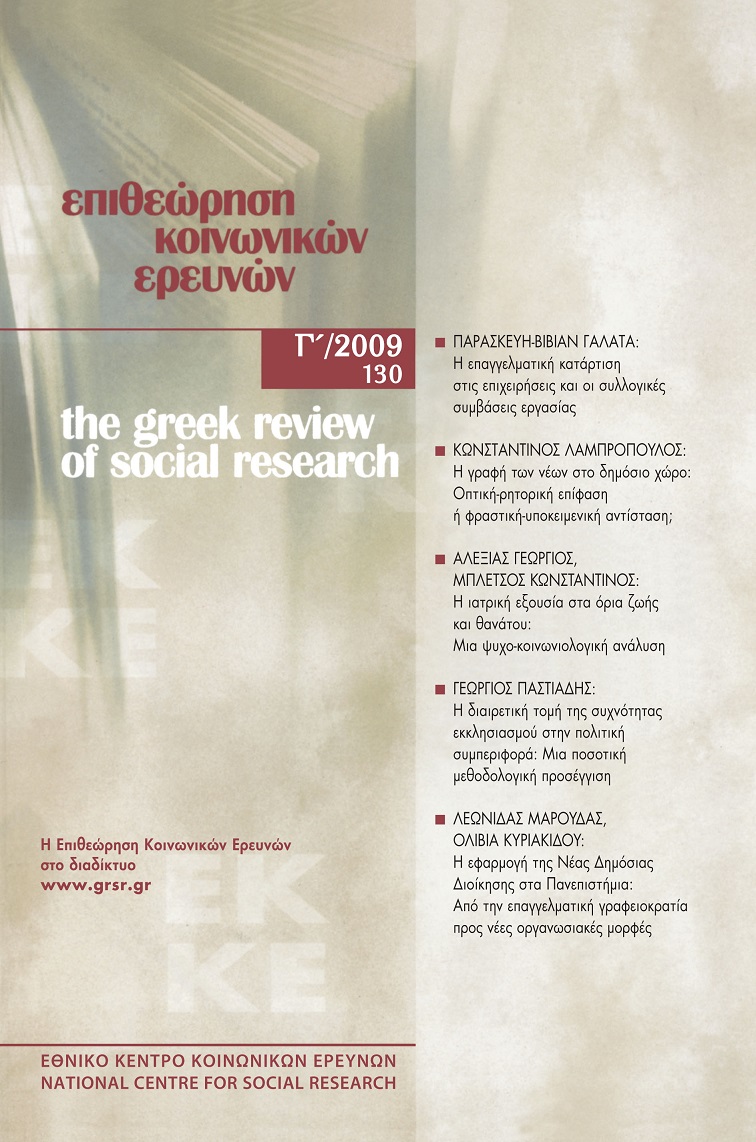Το ανθρώπινο σώμα: Από τη βιολογία στη δυνητικοποίηση
Abstract
Το ανθρώπινο σώμα αποτελεί ένα αντικείμενο μελέτης το οποίο στο πλαίσιο τον θετικιστικού λόγου έχει ταυτισθεί με τις φυσικές επιστήμες. Η καρτεσιανή φιλοσοφική παράδοση και ο συνακόλουθος δυϊσμός της ανθρώπινης ύπαρξης σε σώμα και πνεύμα νομιμοποίησε τη διαχείριση του ως βιολογικού αντικειμένου από την ιατρική και τις φυσικές επιστήμες συμπαρασύροντας παράλληλα και τις κοινωνικές επιστήμες στην υιοθέτηση και αναπαραγωγή του συγκεκριμένου δυϊσμού. Η ανάπτυξη όμως της ιατρικής τεχνολογίας και γνώσης (ανακάλυψη DNA, προσθετική ιατρική, εμφυτεύσεις οργάνων δωρητών και μηχανημάτων, πλαστική ιατρική, τηλε-ιατρική κλπ.), σε συνδυασμό με τη διάδοση των νέων τεχνολογιών και του διαδικτύου ως μορφής διαμεσολάβησης μιας σειράς κοινωνικών σχέσεων και επαφών (email, chatrooms, cyber-sex, τηλε-διασκέψεις «tele-conference»), διαμορφώνει ως προβληματική την παραδοσιακή βιολογική εικόνα του ανθρώπινου σώματος προτείνοντας ως μελλοντική του μορφή αυτή του δυνητικού (virtual body).
Article Details
- How to Cite
-
Αλεξιάς Γ. (2003). Το ανθρώπινο σώμα: Από τη βιολογία στη δυνητικοποίηση. The Greek Review of Social Research, 111, 327–357. https://doi.org/10.12681/grsr.9229
- Issue
- 2003: 111-112 Β'-Γ'
- Section
- Articles

This work is licensed under a Creative Commons Attribution-NonCommercial 4.0 International License.
Authors who publish with this journal agree to the following terms:
- Authors retain copyright and grant the journal right of first publication with the work simultaneously licensed under a Creative Commons Attribution Non-Commercial License that allows others to share the work with an acknowledgement of the work's authorship and initial publication in this journal.
- Authors are able to enter into separate, additional contractual arrangements for the non-exclusive distribution of the journal's published version of the work (e.g. post it to an institutional repository or publish it in a book), with an acknowledgement of its initial publication in this journal.
- Authors are permitted and encouraged to post their work online (preferably in institutional repositories or on their website) prior to and during the submission process, as it can lead to productive exchanges, as well as earlier and greater citation of published work (See The Effect of Open Access).

